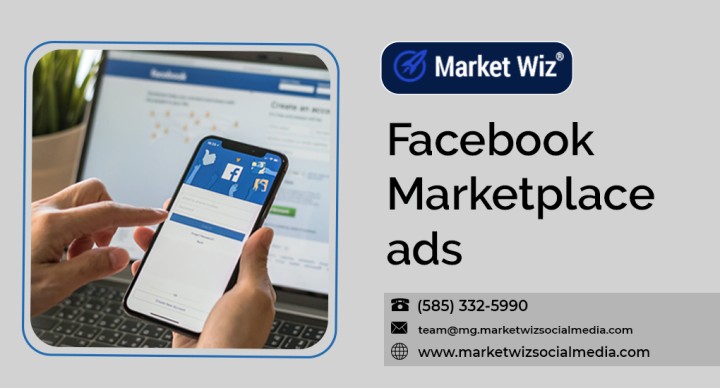Benefits of Social Media Marketing for Small Businesses
Introduction
In today's digital era, social media has become an indispensable tool for businesses of all sizes. For small businesses, social media marketing offers a unique opportunity to connect with customers, build brand awareness, and drive sales without the hefty budgets traditionally associated with advertising. However, the true potential of social media can only be harnessed through effective marketing strategies that align with your business goals.
This comprehensive guide explores the myriad benefits of social media marketing for small businesses, providing actionable insights and strategies to help you leverage these platforms effectively. Whether you're new to social media marketing or looking to refine your existing efforts, understanding these benefits is crucial to achieving sustainable growth and success.
Key Benefits of Social Media Marketing for Small Businesses
Social media marketing offers a multitude of benefits that can significantly impact the growth and success of small businesses. Here are the key advantages:
- Increased Brand Awareness: Social media platforms allow small businesses to reach a vast audience, enhancing visibility and recognition. Consistent posting and engagement help keep your brand top-of-mind among potential customers.
- Cost-Effective Marketing: Compared to traditional marketing channels, social media marketing is more affordable. Many platforms offer free business accounts, and paid advertising options can be tailored to fit various budgets, ensuring maximum return on investment.
- Targeted Audience Reach: Social media platforms provide advanced targeting options based on demographics, interests, behaviors, and more. This precision ensures that your marketing efforts are directed toward the most relevant audience, increasing the likelihood of engagement and conversions.
- Enhanced Customer Engagement: Social media enables direct interaction with customers through comments, messages, and posts. Engaging with your audience fosters stronger relationships, builds trust, and encourages customer loyalty.
- Valuable Customer Insights: Analytics tools offered by social media platforms provide in-depth insights into customer behavior, preferences, and trends. This data helps you make informed decisions, tailor your marketing strategies, and improve overall business performance.
- Improved Search Engine Rankings: Active social media profiles and content sharing can contribute to better search engine visibility. Social signals, such as shares and likes, are considered by search engines when ranking websites, potentially boosting your SEO efforts.
- Competitive Advantage: Effective social media marketing can set your small business apart from competitors who may not be leveraging these platforms as effectively. A strong social media presence can position your brand as an industry leader and attract more customers.
- Increased Website Traffic: By sharing links to your website, blog posts, and landing pages on social media, you can drive more traffic to your site. This increased traffic can lead to higher conversion rates and more sales.
- Flexibility and Adaptability: Social media campaigns can be quickly adjusted based on performance metrics and changing market trends. This flexibility allows small businesses to stay agile and respond to opportunities and challenges in real-time.
- Integration with Other Marketing Channels: Social media can complement other marketing efforts, such as email marketing, content marketing, and SEO. Integrating these channels creates a cohesive marketing strategy that amplifies your overall reach and effectiveness.
Effective Strategies for Social Media Marketing
To maximize the benefits of social media marketing, small businesses should implement effective strategies that align with their goals and resonate with their target audience. Here are some proven strategies to consider:
1. Define Clear Objectives
Before launching any social media campaign, it's essential to define what you aim to achieve. Clear objectives provide direction and help measure the success of your efforts. Common objectives include:
- Brand Awareness: Increase visibility and recognition of your brand.
- Lead Generation: Capture potential customer information for future marketing efforts.
- Sales and Conversions: Drive direct sales or other desired actions on your website.
- Customer Engagement: Foster interactions and build relationships with your audience.
- Website Traffic: Increase the number of visitors to your website or specific landing pages.
Setting Specific, Measurable, Achievable, Relevant, and Time-bound (SMART) goals ensures your campaigns are focused and effective.
2. Understand Your Target Audience
Knowing your audience is fundamental to creating content that resonates. Conduct thorough research to understand your target market's demographics, interests, behaviors, and pain points. Utilize tools like Facebook Audience Insights, Google Analytics, and social media platform analytics to gather data on your existing customers and identify patterns that can inform your strategies.
3. Create High-Quality, Engaging Content
Content is the backbone of any social media campaign. High-quality, relevant, and engaging content can capture your audience's attention and encourage interaction. Here are some tips for creating effective content:
- Visual Appeal: Use high-resolution images, videos, infographics, and other visual elements to make your posts stand out.
- Value-Driven Content: Share content that provides value to your audience, such as tips, tutorials, industry news, and inspirational stories.
- Consistency: Maintain a consistent posting schedule to keep your audience engaged and your brand top-of-mind.
- Storytelling: Use narratives to connect emotionally with your audience, making your content more relatable and memorable.
- Interactive Content: Encourage engagement through polls, quizzes, contests, and questions that prompt your audience to interact.
4. Optimize Posting Schedules
Timing plays a crucial role in the success of your social media posts. By posting when your audience is most active, you can maximize engagement and reach. Use social media analytics tools to determine the optimal times to post based on when your followers are online and interacting with your content.
5. Utilize Relevant Hashtags
Hashtags can significantly increase the visibility of your posts by making them discoverable to a broader audience. Research and use relevant hashtags that align with your content and target audience. Avoid overusing hashtags; instead, focus on a mix of popular and niche-specific hashtags to reach the right people.
6. Engage with Your Audience
Social media is a two-way street. Engaging with your audience fosters relationships and builds trust. Respond promptly to comments, messages, and mentions. Show appreciation for your followers' support and encourage conversations around your brand.
7. Leverage Social Media Analytics
Analytics tools provide valuable insights into the performance of your social media campaigns. Track key metrics such as engagement rates, reach, impressions, click-through rates, and conversion rates. Use this data to assess the effectiveness of your strategies and make informed decisions to optimize your campaigns.
8. Implement SEO Best Practices
While SMO focuses on social media platforms, integrating SEO best practices can enhance your overall online presence. Optimize your social media profiles with relevant keywords, include links to your website, and create content that aligns with search intent. This synergy between SMO and SEO can drive more organic traffic to your website.
9. Collaborate with Influencers
Influencer partnerships can amplify your social media reach and credibility. Collaborate with influencers who align with your brand values and have an engaged following. Whether through sponsored posts, product reviews, or joint campaigns, influencer collaborations can help you tap into new audiences and build trust.
10. Continuously Optimize Your Strategies
Social media trends and algorithms are constantly evolving. Stay updated with the latest developments and be ready to adapt your strategies accordingly. Regularly review your campaign performance, experiment with new approaches, and refine your tactics to stay ahead of the competition.
Case Study: Boosting Brand Awareness with Strategic Social Media Marketing
Business: SweetTreats Bakery
Industry: Local Bakery
Challenge: SweetTreats Bakery, a small local bakery, struggled to increase its customer base and compete with larger chains in the area. Despite offering unique and delicious pastries, their online presence was minimal, resulting in low foot traffic and sales.
Solution: SweetTreats Bakery implemented a strategic social media marketing campaign focusing on Instagram and Facebook. Their approach included:
- Content Strategy: Developed a content calendar featuring high-quality images of their pastries, behind-the-scenes looks at baking processes, customer testimonials, and seasonal promotions.
- Engagement Tactics: Actively responded to comments and messages, hosted giveaways, and encouraged customers to share their SweetTreats experiences using a branded hashtag (#SweetTreatsMoments).
- Influencer Collaborations: Partnered with local food influencers who shared honest reviews and featured SweetTreats pastries in their posts.
- Targeted Advertising: Ran Facebook and Instagram ads targeting local food enthusiasts, highlighting special offers and new product launches.
- Analytics and Optimization: Utilized Instagram Insights and Facebook Analytics to track engagement, reach, and conversion rates, adjusting strategies based on performance data.
Results:
- Increased Followers: Instagram followers grew by 350% within six months, and Facebook followers increased by 200%.
- Higher Engagement: Engagement rates on posts surged by 400%, with a significant rise in likes, comments, and shares.
- Sales Growth: Foot traffic to the bakery increased by 50%, and online orders saw a 150% boost during the campaign period.
- Brand Awareness: The branded hashtag #SweetTreatsMoments was used over 500 times, generating authentic user-generated content and expanding the bakery's reach.
This case study demonstrates how strategic social media marketing can transform a small business's online presence, drive customer engagement, and significantly boost sales.
Frequently Asked Questions
- 1. What are the main benefits of social media marketing for small businesses?
- Social media marketing offers increased brand awareness, cost-effective marketing, targeted audience reach, enhanced customer engagement, valuable customer insights, improved SEO, competitive advantage, measurable results, flexibility, and integration with other marketing channels.
- 2. How does social media marketing enhance brand awareness?
- Social media platforms provide a vast audience base where small businesses can consistently showcase their brand, share engaging content, and interact with potential customers, thereby increasing visibility and recognition.
- 3. Why is social media marketing cost-effective for small businesses?
- Compared to traditional marketing channels, social media marketing often requires a lower investment while offering a higher return on investment through targeted advertising and organic reach.
- 4. How can small businesses measure the success of their social media marketing efforts?
- Success can be measured using key performance indicators (KPIs) such as engagement rates, follower growth, website traffic from social media, conversion rates, click-through rates, and return on investment (ROI). Analytics tools provided by social media platforms and third-party tools like Google Analytics can aid in tracking these metrics.
- 5. Can social media marketing help small businesses compete with larger companies?
- Yes, social media marketing levels the playing field by allowing small businesses to reach and engage with their target audience effectively without the need for large marketing budgets, thereby competing more directly with larger companies.
Additional Keywords for Your Social Media Marketing Content
- Affordable Social Media Strategies
- Effective Social Media Management
- Social Media Marketing Tools
- SEO for Social Media
- Content Marketing for SMO
- Engaging Social Media Content
- Social Media Analytics Tools
- Lead Generation through Social Media
- Optimizing Social Media Ads
- Social Media ROI Tracking
- DIY Social Media Campaigns
- Small Business Digital Marketing
- Social Media Branding Strategies
- Interactive Social Media Campaigns
- Customer Engagement on Social Media
- Social Media Marketing Trends
- Cost-Effective Marketing Solutions
- Social Media Content Planning
- Influencer Marketing for Small Businesses
- Best Practices for Social Media Marketing
- Social Media Campaign Analytics
- Maximizing Social Media Reach
- Social Media Engagement Techniques
- Social Media Optimization Tools
- Small Business Social Media Strategies
- Brand Awareness on Social Media
Ready to unlock the full potential of social media marketing for your small business? Contact us today to get started with expert strategies and tools tailored to your needs!

















